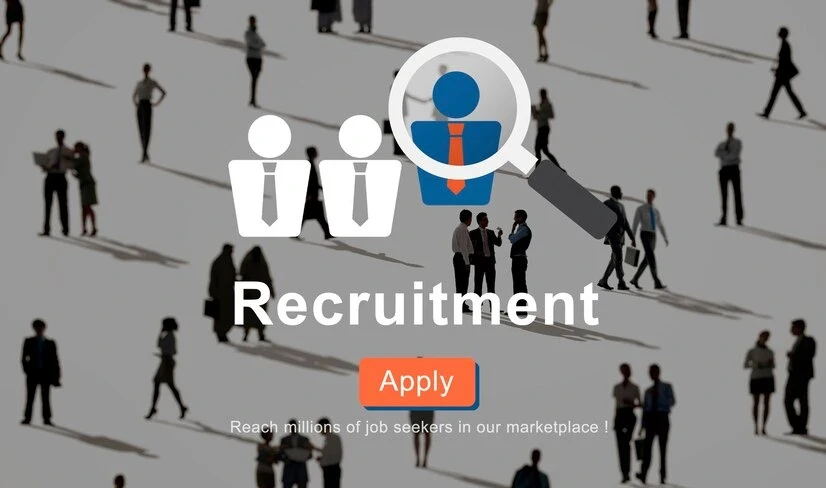
Importance of Having Recruitment Management Software for Modern Businesses
If you're an HR professional or aspiring to be one, understanding both the behavioral complexities and challenges of the role is crucial. One of the biggest hurdles in HR is attracting and retaining the right talent, a factor that directly influences organizational success.
In today’s competitive job market, the corporate environment has become more challenging, with rising competition leading to workplace toxicity and internal politics. Many well-known organizations have faced reputational damage due to these issues. This has increased the need for HR professionals to be skilled in both emotional intelligence and technical expertise.
While human connection and emotional intelligence remain vital, the technical aspect of HR management cannot be ignored. To streamline hiring processes and overcome recruitment challenges, organizations must leverage Recruitment Management Software (RMS).
This article explores the importance of recruitment software in modern businesses and how it can enhance efficiency, improve talent acquisition, and simplify hiring workflows.
What is Recruitment Management Software?
Recruitment Management Software (RMS) is a type of software solution designed to streamline and automate the recruitment process for organizations. It helps HR teams manage the entire hiring process—from posting job openings to onboarding new employees—more efficiently and effectively.
Key Features of Recruitment Management Software:
Job Posting: Allows HR professionals to create and distribute job advertisements across various job boards, social media platforms, and career websites.
Applicant Tracking: Tracks applicants throughout the recruitment process, from submission to interview, and stores candidate information in an easily accessible database.
Resume Parsing: Automatically extracts key data from resumes to help recruiters quickly evaluate candidate qualifications and fit for a role.
Interview Scheduling: Simplifies the scheduling of interviews and communication between candidates and hiring teams, often with integrated calendar syncing.
Candidate Screening: Offers tools to assess and score candidates based on predefined criteria, improving the quality of hires.
Collaboration Tools: Allows team members to collaborate in real-time, share feedback, and make decisions quickly.
Reporting & Analytics: Provides valuable insights into the recruitment process, such as time to hire, source of hire, and candidate pipeline performance.
Onboarding Integration: In some systems, RMS integrates with onboarding platforms, helping to smooth the transition from hiring to employee induction.
Why Recruitment Management Software is Essential for Modern Businesses?
There are several reasons why recruitment management software is important:
Reduced Time-to-Hire: Traditional recruiting methods can be time-consuming and often ineffective. Manually sifting through numerous resumes is not the best approach to hiring. Recruitment management software automates essential tasks such as parsing resumes, screening candidates, and scheduling interviews, significantly shortening the hiring timeline.
Centralized Candidate Data: A hiring management system can store all candidate information in a centralized database, making it easier to access, track, and manage. This leads to a more organized hiring process and allows HR teams to monitor candidates throughout the recruitment lifecycle.
Improved Collaboration: With all recruitment tools integrated into one platform, HR teams and hiring managers can collaborate more effectively with other stakeholders. Communication becomes more efficient, as everyone involved in the recruitment process has real-time access to the necessary data.
Benefits of Recruitment Management Software
Efficiency: Automates time-consuming tasks like resume screening and interview scheduling, freeing up HR teams for more strategic work.
Improved Candidate Experience: Streamlines communication and feedback, offering a better experience for applicants.
Data-Driven Decisions: With built-in analytics, RMS helps HR professionals make data-backed decisions, reducing biases and improving hiring outcomes.
Enhanced Collaboration: Encourages better communication among hiring managers, recruiters, and team members, leading to faster decision-making.
How Recruitment Software Streamlines the Hiring Process
Recruitment software streamlines the hiring process by automating, centralizing, and optimizing various stages of recruitment, from job posting to onboarding. Here's how it simplifies the process:
Job Posting and Advertising: Recruitment software enables HR professionals to effortlessly create and share job postings across various platforms—such as job boards, the company website, and social media—with just one click. This streamlines the process and saves time by removing the need to post manually on each site.
Applicant Tracking: Once job postings go live, recruitment software helps in tracking every applicant’s journey. The software stores resumes, cover letters, and all application-related data in a centralized database, making it easy for recruiters to access and evaluate candidates.
Resume Parsing: Most recruitment software comes equipped with resume parsing technology that automatically pulls out essential details from resumes, including work experience, skills, and qualifications. This feature removes the necessity for manual data entry and enables recruiters to quickly pinpoint qualified candidates.
Screening and filtering: Recruitment software typically features integrated AI screening tools that efficiently evaluate candidates according to specific criteria like skills, experience, and education. These tools can automatically rank applicants or eliminate those who don't meet the qualifications, ensuring that only the most suitable candidates progress in the hiring process.
Interview Scheduling: The software integrates with calendars to streamline interview scheduling. It allows both recruiters and candidates to select available time slots, reducing the back-and-forth communication typically required to find a suitable interview time.
Collaboration and Feedback: With recruitment software, HR teams and hiring managers can collaborate more efficiently. They can leave notes, share feedback, and track candidate progress in real-time, ensuring that everyone involved is on the same page and making quicker decisions.
Candidate Communication: Recruitment software streamlines communication with candidates at every stage, sending out confirmation emails, interview reminders, rejection notices, and offer letters. This ensures that candidates stay informed and engaged, enhancing their overall experience.
Data Analytics and Reporting: Recruitment software provides detailed reporting and analytics, allowing HR teams to monitor key metrics such as time-to-hire, source of hire, and applicant conversion rates. This data helps optimize the recruitment strategy, making the process more efficient.
Enhanced Candidate Experience: By automating time-consuming tasks and providing a more organized process, recruitment software creates a smooth and professional experience for candidates. Automated communication, faster feedback loops, and easy-to-use interfaces all contribute to a positive experience that enhances your employer brand.
Onboarding Integration: Some recruitment software also integrates with onboarding systems, making the transition from hiring to employee induction seamless. Once a candidate is hired, the system can automatically trigger the onboarding process, including document submission, training schedules, and other necessary steps.
Conclusion:
In conclusion, an Applicant Tracking System (ATS) equips modern businesses with the tools necessary to stay ahead in the competitive talent acquisition landscape. With benefits ranging from faster hiring and enhanced candidate experience to data-driven decision-making, the advantages are evident. By adopting the right recruitment software, companies can save valuable time, streamline operations, and gain key insights into their hiring process.
For organizations aiming to scale their recruitment efforts, investing in recruitment management software is a smart decision that promises long-term returns.




